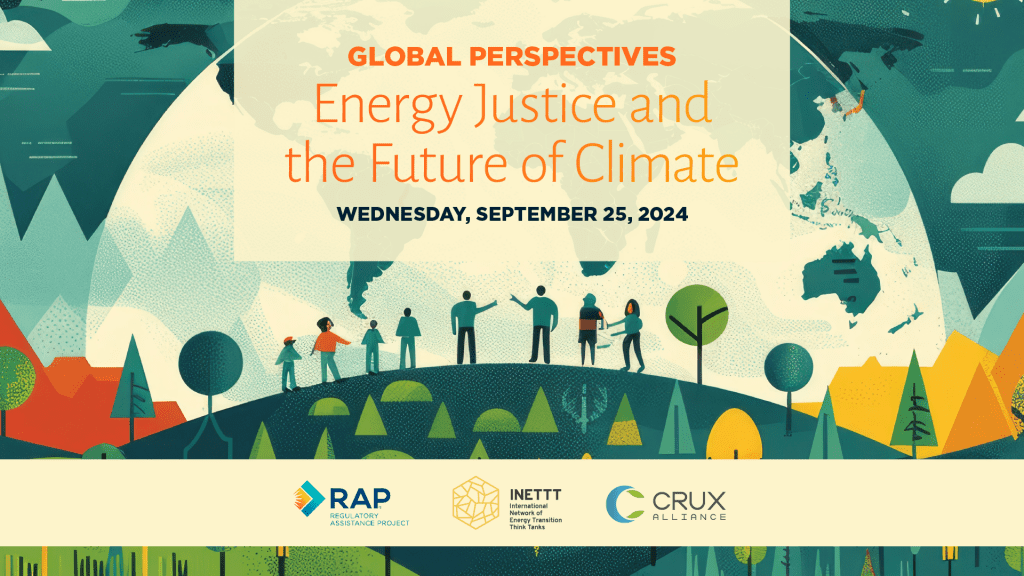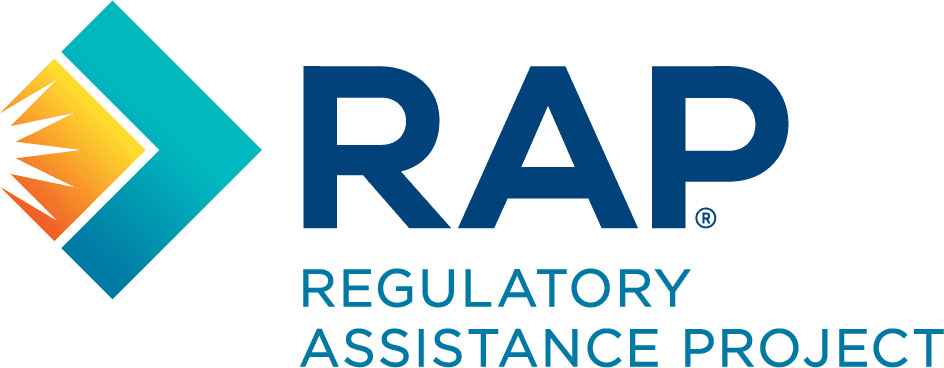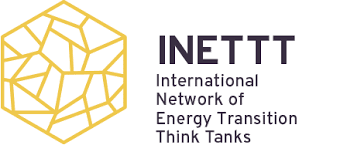
We must urgently cut harmful emissions to safeguard human health, security, and economic development. At the same time, the global clean energy transition offers a tremendous opportunity to not only create jobs and broaden economic prosperity, but to strengthen public health and well-being, and rectify historical inequities. Climate and clean energy policies must be designed to ensure access to these benefits for all people, with particular attention paid to communities that are economically dependent on the fossil fuel economy or that have been disproportionately burdened by fossil fuel pollution.
This New York Climate Week event brings together Crux Alliance members from Brazil, Europe, India, Kenya, Mexico, and the United States to share perspectives from their work integrating equity and energy justice into policies targeting the appliances, buildings, electricity, and transport sectors. We are looking forward to a dynamic discussion of how to advance equitable and just clean energy and climate policies.
Meet the panelists:
Damali Harding, Principal and U.S. Program Director, Regulatory Assistance Project (Moderator)

“Climate justice is a global challenge and opportunity. Bringing together activists from across different regions and perspectives, ensures equitable outcomes that will drive access and affordability in the transition to clean energy.”
Damali Harding is an expert in renewable energy and electric utilities. She has provided strategic advising to Duke Energy, National Grid and other major U.S. and international energy companies. Before joining RAP, she worked for Oracle (formerly Opower), where she advised utilities on behavioral load shaping, customer engagement strategies and demand response management. Previously, Harding served as executive director of The Energy Co-op, a member-owned nonprofit cooperative that provides renewable energy to thousands of homes and businesses in the greater Philadelphia area. She remains on the board of the cooperative.Damali Harding also served as commercial director for Enviva LP, the world’s largest producer of industrial biomass to create clean renewable energy. She has also worked for IBM Global Business Management services and Deloitte Consulting as a strategy consultant focusing on operations. Damali Harding is on the board of the American Association of Blacks in Energy and is a member of Women of Renewable Industries and Sustainable Energy. She earned a Bachelor of Arts from Dartmouth College and a Master of Business Administration from Dartmouth’s Tuck School of Business.
Clarisse Cunha Linke, Brazil Director, Institute for Transportation and Development Policy

“The stark inequality that permeates every aspect of life in Brazil is impossible to ignore. I have long believed that we are amid interconnected crises—ecological, social, and economic. This understanding led me to dedicate myself to working from a civil society perspective. The transition isn’t just about adopting new vehicle technology. This is our chance to revitalize public transport as a cornerstone of a just transition, aligning environmental, economic, and social justice objectives.“
Clarisse Cunha Linke is a Brazilian who has been involved in planning and implementing social policies and programs since 2001, with experience in Brazil, Mozambique, and Namibia. She holds a Masters in Social Policy, NGOs, and Development from the London School of Economics and Political Science (LSE), where she received the “Titmuss Examination Prize” in 2005. Clarisse joined ITDP Brazil in 2012. From 2006-2011, she was a Director at the Bicycling Empowerment Network Namibia (BEN Namibia), where she played a key role in expanding BEN Namibia’s activities, helping it develop the most extensive community-based enterprise bicycle distribution network in sub-Saharan Africa. In 2010, she was awarded by Ashoka Changemakers in the “Women, Tools, and Technology” Challenge for the work done in Namibia with women. Since 2014, she has been a postgraduate professor at the Social Responsibility and Sustainability Laboratory (LARES) at the Institute of Economics at the Federal University of Rio de Janeiro (UFRJ). From 2017-2019 she was a Board Member of the Sustainable Low Carbon Transport Network (SLoCaT). In addition, she has been a Global Future Council on Mobility member of the World Economic Forum since 20018. In 2019, she was recognized as a “Remarkable Women in Transport” by the Transformative Urban Mobility Initiative (TUMI). Clarisse is currently a Ph.D. candidate in Architecture and Urbanism School at Fluminense Federal University (PPGAU/UFF). She intends to explore how current narratives about the future of mobility have the potential to generate greater inequity and socio-spatial segregation, particularly for women, black people, and residents of Brazilian urban peripheries.
Mugure Njendu, Program Development Consultant, Africa, Global Buildings Performance Network

“GBPN embraces equity through our bottom up approach. In our work, we identify local experts and organisations that are trusted in policy reform and work with them to develop reform strategies that are responsive to local conditions. This ensures that the needs of those who are most impacted directly by the work, are addressed. The local experts have a clear understanding of transition issues socially, economically and environmentally, allowing GBPN to mitigate impacts to the most vulnerable in the communities. Through our work related to health and housing, we respond to the need for housing to be fit for future climates and further improve health through bioclimatic design, renewable energy, and technologies like grid-interactivity responding to the right of every individual to adequate housing.”
Mugure Njendu is a Built Environment Professional with over 17 years of experience in the African region. She is an Urban Planner, Green Building Consultant and an Architect. Mugure is a past President of the Architectural Association of Kenya and a current council Member of the International Union of Architects as a Council Member of Region V; Africa. In the past 8 years, her focus in leadership, research, advocacy and practice has been in Green Building Design, Policy and Programs. She has worked on regulations drafting to support sustainable construction on the continent, as well as support of local green building rating platforms. Her research and publication projects include;The redesign and retrofit of Healthcare facilities for Covid -19 and Rethinking Educational space post Covid 19. She is a Climate Action advocate in the Built Environment and has been recognized as one of the top 10 Global green voices by Mandalore Capital in 2021 and 2022. Mugure is a professional who understands the emissions produced in the chain of the Built Environment both at the Building and Urban Scale. She is passionate about the reduction of Carbon Emissions globally. She believes that the African Opportunity to build better lies in the policy development happening in the region and in the rapid urbanization and need for housing on the continent.
Luisa Sierra, Energy Director, Iniciativa Climática de México

“In the absence of adequate integration of equity into policies, there is a risk of perpetuating existing inequalities, exacerbating them or, worse, creating new ones. It is acknowledged that historical injustices exist, and that climate change presents greater challenges to vulnerable populations, including low-income communities, Indigenous peoples and marginalised groups. It is thus imperative to integrate equity into our objectives, ensuring that these groups receive the required support and that the benefits and burdens of addressing climate change are distributed equitably. Furthermore, inclusive policies are more likely to be accepted and embraced by vulnerable communities and decision-makers alike. This enhances the likelihood of successful and resilient implementation, while also mitigating the social opposition of energy transition.”
Luisa Sierra has more than 10 years of experience in the energy and climate change sector. She is in charge of conceptualizing and developing projects and programs to achieve the decarbonization of the energy sector, as well as managing the energy advocacy efforts to adopt low carbon public policies. She is responsible for identifying public policy needs and priorities; understanding the context of climate and energy policy, as well as the technical information related to this sector. Within ICM, Luisa has coordinated and supervised projects on topics oriented to energy transition, freight transportation, electromobility, energy modeling, subnational planning, oil and gas, photovoltaic solar energy and energy efficiency. Luisa is the author and co-author of different publications and reports. In 2013, prior to joining ICM, she studied Public Policy at the Washington Center and participated in the “Energy and Climate Partnership of the Americas (ECPA) Fellows”, where she worked on different topics, including shale gas production and the economic viability of a thermal depolymerization process. During her graduate studies, she worked with local communities, local and federal governments, and development banks in Dar es Salaam, Tanzania, to negotiate fair compensation for unjustified evictions of local communities. She holds a bachelor degree in Architecture and Master of Science in Urban Development Planning from University College London, where she carried out a socio-technological analysis of the electricity generation and consumption sector in Mexico from a social approach. She has two diplomas: one in mathematics and statistics from the Interactive Museum of Economics (MIDE), and another in corporate finance from the Autonomous Technological Institute of Mexico (ITAM). She is a member of the steering committee of the P4G-GtZ Coalition Alliance for Mexico, and the International Network of Energy Transition Think Tanks (INETTT).
Quinn Parker, Founder and CEO, Encolor

Quinn Parker has over 16 years of professional experience including regulatory finance and analytics, as well as program research, design, planning, implementation, implementation and strategic planning. Ms. Parker is CEO of Encolor, a firm committed to supporting diversity, equity, and inclusion initiatives. Encolor provides inclusive strategies and thoughtful guidance, helping clients achieve their operational and equity goals. Ms. Parker is a Certified Diversity Professional (CDP) and a Lean Six Sigma Green Belt. Ms. Parker holds an M.B.A from California State University, Dominguez Hills and a B.A. from Loyola Marymount University. Ms. Parker is an experience trainer and facilitator.
Louise Sunderland, Managing Principal, Regulatory Assistance Project

“European citizens care about inequality. Inequality is rising in national populations in Europe and citizens have told us they think inequalities are too great. Citizens look to our policy makers – and therefore us in our role supporting policy makers – to address inequity. The clean energy transition presents an opportunity to reduce inequities, but only if we specifically aim for it. My personal focus, from early in my career, has been on improving the energy efficiency of the worst housing. Substandard housing leads to high energy costs and makes accessing enough energy much harder. Recently, I have expanded my focus to a wider set of policies – from those establishing basic protections for energy supply, to inclusive designs that make new smart energy system benefits accessible to lower income and marginalised communities first, not last. Identifying and elevating social goals alongside energy or climate goals is a key focus for my work in RAP within the European climate community.”
Louise Sunderland is managing principal within RAP’s European program, sharing responsibility for the overall direction and management of RAP’s work in Europe with the European Program Director. Louise is an expert in demand-side energy policies and energy justice, with 15 years’ experience working on energy efficiency, buildings decarbonization, energy pricing and energy poverty. Louise leads RAP’s work in Europe on ensuring the energy transition benefits lower income and otherwise excluded households, supporting the whole team to fulfil this aim. She also leads RAP’s ongoing work to support the introduction of minimum energy performance standards, which are regulations to improve the performance of existing buildings, both at European and national level. Throughout her career, Louise has worked closely with industry, the nonprofit sector and policymakers on clean energy transition policy development, most recently for the UK Green Building Council. She is an external expert for the European Commission and has served as an expert witness to provide evidence to the United Kingdom’s House of Lords. Before moving into the energy field, she spent her early career working in international development and community development. Sunderland earned a master of science from Imperial College London in environmental technologies and received the BP Prize for Strategic Thinking. She also holds a master of arts and an undergraduate degree in English.
Bishal Thapa, Senior Director, India Program, CLASP

“Whether with solar water pumps that provide vulnerable small holding farmers reliable irrigation services, or super-efficient fans that provide millions of people the only respite from the scorching heat, our work is helping to deploy climate friendly solutions to improve well-being, enhance livelihoods and increase resilience of communities that have been historically left behind. Through our work we are discovering that integrating stronger equity considerations in policies and programs is critical to generating broad based support that can help overcome the barriers to implementing climate friendly solutions. The international community must do more to integrate stronger equity considerations in global climate agreements to ensure that all countries implement climate policies and programs that benefits everyone, including vulnerable and marginalized communities.”
Bishal Thapa brings 22 years of global experiences working with a wide range of public and private sector partners across energy, climate, energy efficiency, environment, and sustainability. He brings expertise in designing, developing, and implementing multi-dimensional energy sector projects with governments, development agencies and private sector entities. As an economist by training, his expertise includes financial analysis, quantitative modelling, policy, research and project design. He also has demonstrated track record in the design, implementation, and financing of distributed energy systems, having worked extensively with on and off-grid solar solutions. Outside of work, Bishal is an avid writer, frequently focusing on political and social issues. He holds a master’s degree in economics from the University of Maryland and an undergraduate degree in economics, mathematics, and political science from Monmouth College.
Co-hosting organizations:

Regulatory Assistance Project (RAP)® is an independent, global non-governmental organization with a mission of advancing policy innovation and thought leadership within the energy community. RAP experts help you navigate the complex work of clean energy policy creation and negotiation. The challenge of a carbon-free future is daunting and decarbonizing our economies requires a holistic approach to meeting energy needs. RAP is there as you consider a full range of scenarios, shifts in technology, market dynamics and policy ambitions to craft equitable solutions.

The Crux Alliance was established in 2018 to support the rapid implementation of ambitious, cutting-edge climate policies. By using top-of-the-class, nonprofit organizations with deep policy design expertise, the Crux Alliance helps policymakers in the 20 highest-emitting countries to design carbon mitigation policies for the sectors critical to long-term climate stability.

The International Network of Energy Transition Think Tanks (INETTT) is a group of independent, non-profit think tanks dedicated to working on the energy transition to achieve the climate goals of the Paris Agreement. Founded in 2020, INETTT leverages the collective knowledge and expertise of our member think tanks from across the globe who carry out research and form fact-based policy proposals to accelerate energy transition debates into implementation. At both national and international levels, INETTT provides a trusted dialogue space to share knowledge, build capacities, form strategic positions, and conduct research and policy advice on accelerating the energy transition towards climate neutrality.
